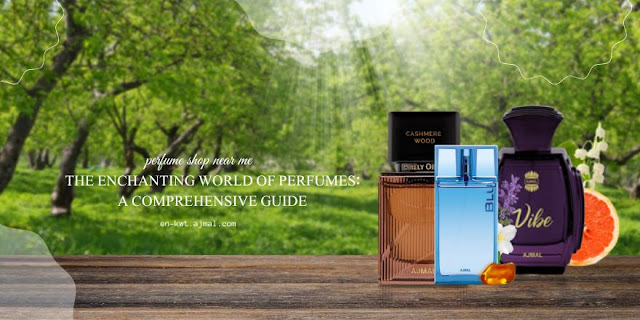Perfumes have been a cherished
element of human culture for centuries, embodying luxury, personal expression,
and memories. A carefully selected scent can uplift moods, evoke emotions, and
leave a lasting impression. In this article, we explore the world of perfumes,
their types, crafting process, and tips for selecting the perfect fragrance.
What
is a Perfume?
A perfume is a fragrant liquid
typically composed of essential oils, aroma compounds, solvents, and fixatives.
It is designed to emit a pleasant and long-lasting scent when applied to the
body or clothing. Perfumes serve
not only as personal accessories but also as a symbol of individuality and
sophistication.
Types
of Perfumes
1.
Eau de Parfum (EDP)
Eau de Parfum contains a higher
concentration of fragrance oils (15-20%), making it long-lasting and ideal for
special occasions or colder weather.
2.
Eau de Toilette (EDT)
With a concentration of 5-15%, Eau
de Toilette offers a lighter scent suitable for everyday use. It is more
affordable and subtle compared to EDP.
3.
Eau de Cologne (EDC)
Eau de Cologne is a refreshing, citrus-based
fragrance with a lower concentration of oils (2-5%). It is often used as a
revitalizing splash.
4.
Parfum
Parfum, or pure perfume, is the most
concentrated form of fragrance (20-30%). It is luxurious, long-lasting, and
requires only a small amount to achieve a potent scent.
5.
Perfume Oils
These are oil-based fragrances that
last longer on the skin due to their slow evaporation process. They are
alcohol-free and suitable for sensitive skin.
How
Are Perfumes Made?
Creating a perfume is an art that
combines science and creativity. Here are the main steps involved:
1.
Selection of Ingredients
Perfume creation begins with
sourcing natural ingredients like flowers, fruits, spices, woods, and synthetic
compounds to achieve unique aromas.
2.
Extraction
Essential oils are extracted using
methods such as steam distillation, solvent extraction, or enfleurage.
3.
Blending
The perfumer, or "nose,"
blends top, middle, and base notes to create a harmonious fragrance.
4.
Aging
The mixture is aged for weeks or
months to allow the components to meld together and stabilize the scent.
5.
Bottling
Finally, the perfume is filtered and
bottled in exquisite containers that reflect the brand’s personality.
Tips
for Choosing the Perfect Perfume
- Understand the Notes
Perfumes have three layers of notes: top (initial impression), middle (heart of the scent), and base (long-lasting impression). Test all three before purchasing. - Match the Occasion
Choose light, fresh scents for daytime and more intense, sophisticated fragrances for evenings. - Test Before You Buy
Spray on your wrist and wait a few hours to see how the scent interacts with your body chemistry. - Consider Seasonality
Floral and citrusy scents are perfect for summer, while woody and musky fragrances work best in winter. - Stick to Your Budget
Luxurious perfumes are an investment, but you can find high-quality options within any budget.
Caring
for Your Perfume
- Store in a Cool, Dark Place: Keep your perfume away from sunlight and heat to
preserve its quality.
- Seal Properly:
Ensure the bottle is tightly closed to prevent evaporation.
- Avoid Spraying on Clothes: Perfumes are designed for skin application and may
stain fabrics.
FAQs
About Perfumes
1.
What is the difference between Eau de Parfum and Eau de Toilette?
Eau de Parfum has a higher
concentration of fragrance oils, making it more potent and longer-lasting than
Eau de Toilette.
2.
How long does a perfume last on the skin?
The longevity depends on the
fragrance concentration and your skin type. EDP can last 6-8 hours, while EDT
typically lasts 3-4 hours.
3.
Why does perfume smell different on different people?
Perfume interacts with body
chemistry, including skin pH, natural oils, and temperature, resulting in
variations in scent.
4.
Can perfumes expire?
Yes, perfumes can expire. Most last
3-5 years when stored properly. Look for changes in color or scent as signs of
expiration.
5.
Are natural perfumes better than synthetic ones?
Natural perfumes are made from
organic ingredients and are ideal for sensitive skin, while synthetic perfumes
offer a wider range of scents and are often longer-lasting.
Conclusion
Perfumes are more than just
fragrances; they are a celebration of individuality and artistry. Whether
you're a perfume enthusiast or a beginner, understanding the essence of
perfumes helps you make informed choices. Explore, experiment, and embrace the
enchanting world of perfumes to find a scent that speaks to your soul.
